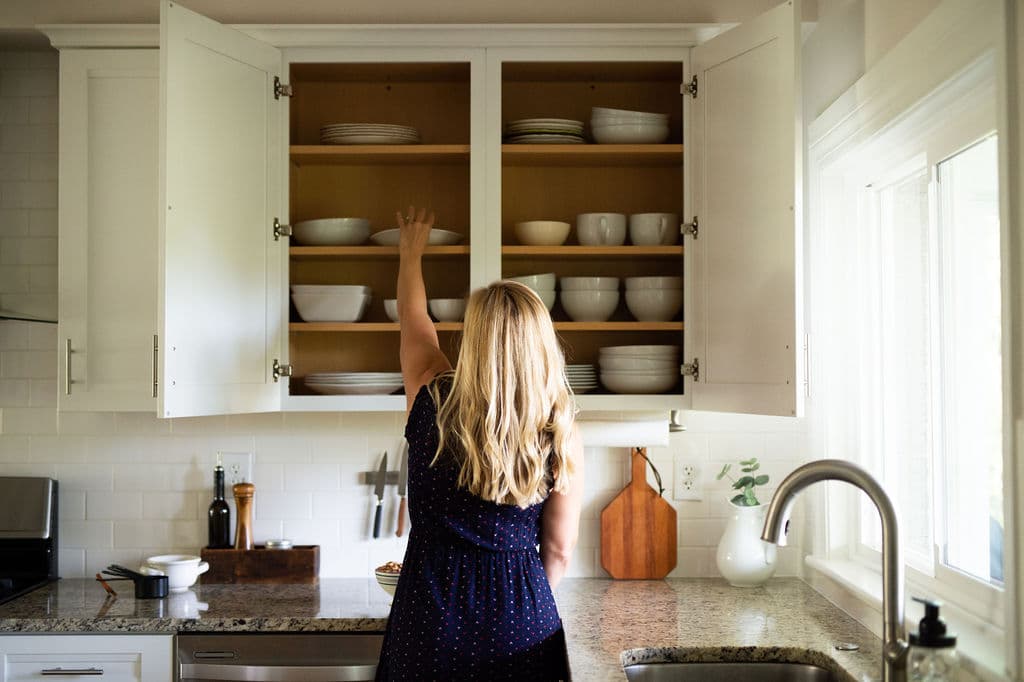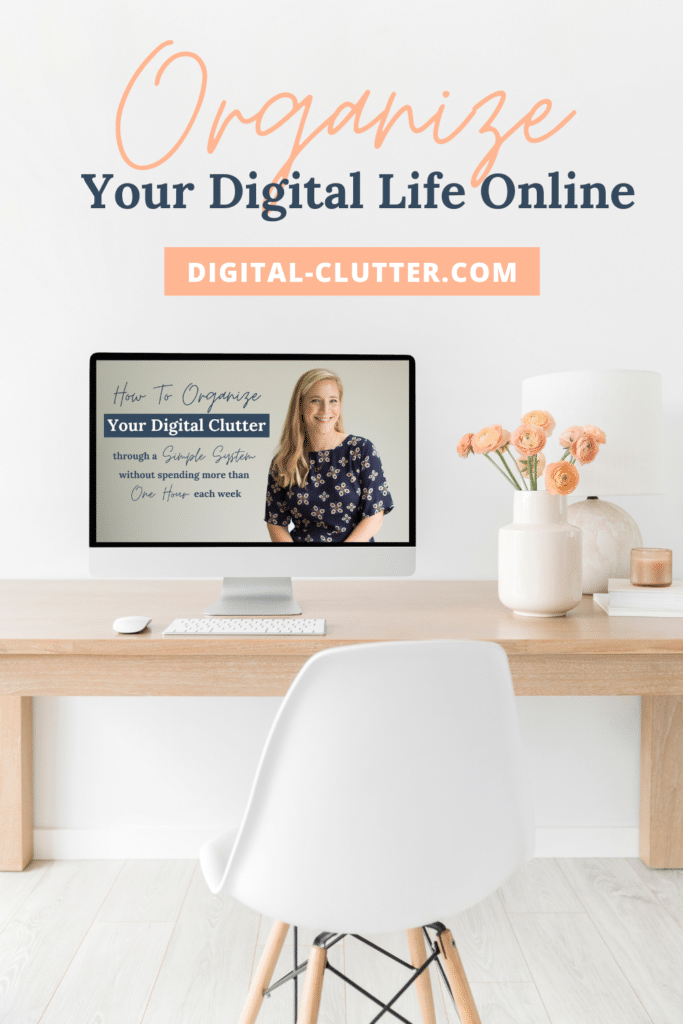Stressed by a mess? Today I’m talking about why decluttering is good for you, and how you can feel more relaxed by clearing the clutter.
Being organized and tidy is something I was born with. When I was growing up, I was that girl who arrived at a friend’s house and announced “Let’s organize your closet!” (Rest assured my friends were pleased with this plan.)
I love a clean kitchen cabinet just as much as I do an organized closet or empty inbox.
Most things in life are out of our control.
Careers change, relationships change, sickness happens (ahem, pandemic), the stock market plummets, your kid scrapes his knee and needs stitches, you get a flat tire… okay, okay, you get the point. Life is messy, and there’s no way around it. Stress is a part of life, and we all have our different ways of coping with it.
But one part of your life you can control is the space around you. When anxiety creeps in, organizing my home is therapeutic for me. And when my spaces are visually pleasing, my mind can relax.
Do stacks of mail skyrocket your stress? Or piles of toys put you in a tizzy? If clutter gives you the crazies too, you’re not alone.
How Clutter Causes Stress
Here is a thorough list of the mental cost of clutter from Psychology Today.
- Clutter bombards our minds with excessive stimuli, causing our senses to work overtime on stimuli that aren’t important.
- Clutter distracts us by drawing our attention away from what our focus should be on.
- Clutter makes it more difficult to relax, both physically and mentally.
- Clutter constantly signals to our brains that our work is never done.
- Clutter makes us anxious because we’re never sure what it’s going to take to get through to the bottom of the pile.
- Clutter creates feelings of guilt and embarrassment, especially when others unexpectedly drop by our homes or work spaces.
- Clutter inhibits creativity and productivity by invading the open spaces that allow most people to think, brainstorm, and problem solve.
- Clutter frustrates us by preventing us from locating what we need quickly.
In addition to messing with our emotions, clutter can cause a physiological response in our bodies as well.
An article titled “The Unbearable Heaviness of Clutter” in the New York Times describes the physiological response clutter can induce:
“The findings add to a growing body of evidence that clutter can negatively impact mental well-being, particularly among women. Clutter can also induce a physiological response, including increased levels of cortisol, a stress hormone.”
And that cortisol response can even be shared with your spouse – a reason all members of the household should contribute to tidying up!
Decluttering Your Home: Where To Start
Whatever area of your home or workspace you want to tidy up first, I’ve got you covered with a series of posts on decluttering your living spaces. Start with the room that bothers you the most and work your way from the outside surfaces that you see the most often to the inside ones that are easy to hide from the eye. See if you notice a difference!
My Decluttering Resources
How To Declutter Your Kitchen Cabinets
5 Tips For Keeping A Clean House With Kids
How To Declutter Your Home Office
Home Neat Home: Manage The Paper

Declutter Your Mind
Sometimes my mind feels like a bucket overflowing with water. Thoughts are racing and I can’t keep up. I have found the best way for me to calm this overflow is to write the thoughts down. I call this a “Thought Download.” Once they’re on paper, I can release them from my brain.
Here are some other articles on decluttering the mind:
- How To Declutter Your Mind: 10 Practical Tips You’ll Actually Want To Try – Forbes
- How to Declutter Your Mind – TED
- Declutter Your Mind: How to Stop Worrying, Relieve Anxiety, and Eliminate Negative Thinking – book by
- 15 Can’t-Miss Ways to Declutter Your Mind – Zen Habits
Declutter Your Devices
Do you wish you had a simple, streamlined system to organize all of the incoming notifications, files, and emails across all of your devices?
I help busy people organize their digital clutter through a simple system that takes less than one hour each week so they can spend more time doing what they love – aka unplugging and living in real life.
It’s all inside my Digital Clutter Course. Want to learn more? Tune into this free workshop.

What clutter causes you the most stress?






Tara says
It took working from home because of COVID to turn me into an organizational expert.
Some areas of my home were generally organized but being stuck inside a one-bedroom condo with cats and a toddler and clutter drove me crazy within the first week of restrictions. Since then, we’ve purged a LOT of unused and unnecessary items, organized what was left, and even changed our buying habits to support sustainable, ethical businesses.
Kath Younger says
That’s awesome!
Charmaine Ng | Architecture & Lifestyle Blog says
So true! I need to start decluttering! 🙂
Charmaine Ng | Architecture & Lifestyle Blog
http://charmainenyw.com
Denise says
Like you, I was born an organizer. Nothing makes me happier then looking in a drawer or cabinet I’ve just cleaned and organized! In fact, April is spring cleaning time for me. Such a great way to start off the warm months. My biggest helpful tip is, tell yourself you only have to do it for 30 minutes. Or 15 minutes even! Sometimes I am SO no in the mood. But typically once I start, I get in the groove and spend an hour plus.
Kath Younger says
Great point! The snowball effect!
K~ says
Excellent post Kath. Thank you. I am an oganizer too. Cluuter makes me anxious.
Kath
Ruthie says
This is a great post on organization.
I need to get to work on it.
The photo of you at the top is great.
So funny!
Thanks for sharing!
Kathryn Agruso says
Lots of content I can use!! Thank you.